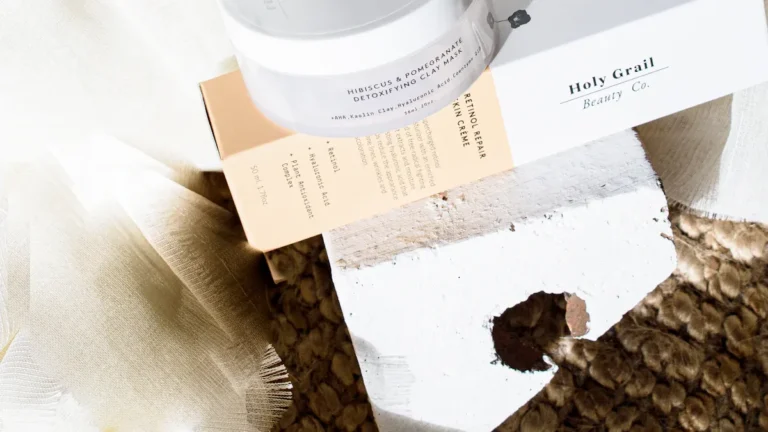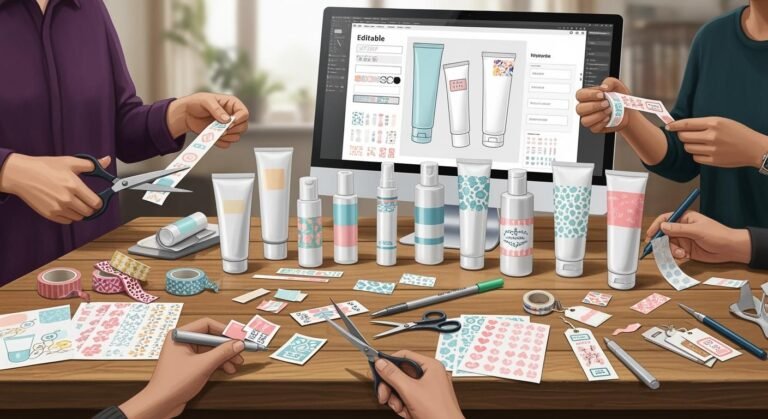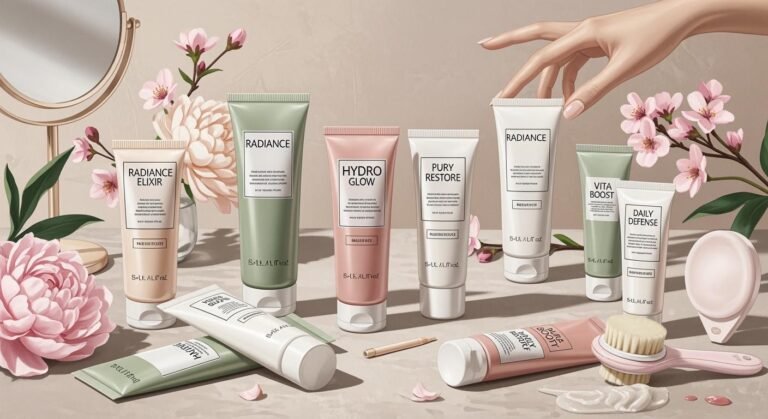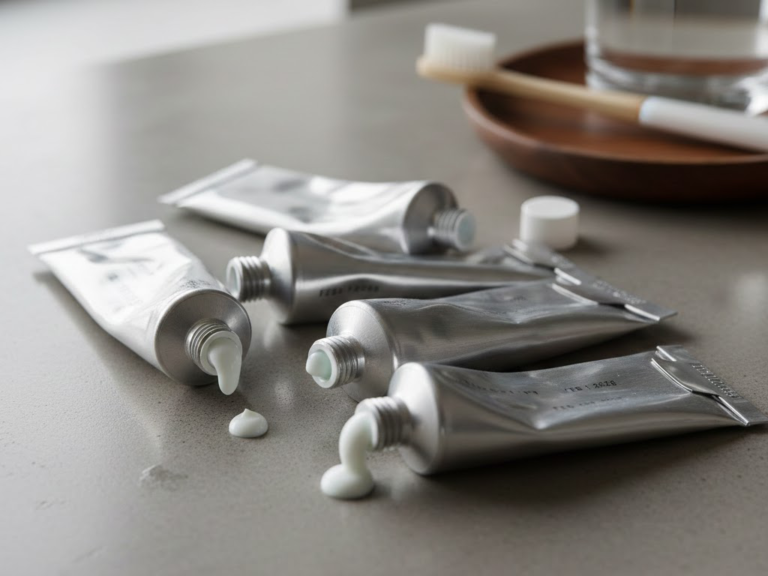The Rise of Refillable Skincare Packaging: How It’s Shaping the Future of Beauty
The beauty industry is undergoing a transformation, and a big part of this change revolves around sustainability. One of the most exciting developments in this field is the rise of refillable skincare packaging. Brands are moving away from single-use plastics and adopting eco-friendly, refillable solutions that not only help reduce waste but also cater to a growing consumer demand for sustainable practices. Let’s dive into how refillable packaging is revolutionizing the skincare industry and the impact it’s having on both brands and consumers.

What is Refillable Skincare Packaging?
Refillable skincare packaging is designed to allow consumers to reuse the same container multiple times by refilling it with new product instead of discarding the entire package. Think of it like your favorite perfume bottle or even a reusable water bottle—but for skincare products. These containers are typically made from durable materials like glass or high-quality plastic, designed to withstand repeated use.
How Does It Work?
The concept is simple: after you finish using a product, you can purchase a refill pack, which often comes in a more sustainable, minimalistic packaging. You then transfer the refill into your original container, reducing waste significantly. This idea aligns perfectly with the growing eco-consciousness among consumers.
Why the Shift to Refillable Packaging?
Environmental Impact: A Growing Concern
The beauty industry has long been criticized for its contribution to plastic waste. With millions of skincare containers discarded every year, it’s clear that something needs to change. Refillable packaging helps cut down on this waste and reduces the carbon footprint of each product. According to some estimates, refillable packaging could reduce plastic waste by as much as 50%, a win for both the environment and brands that care about their sustainability image.
Consumer Demand for Sustainable Choices
In today’s world, consumers are more informed than ever. They want products that reflect their values, and sustainability is at the top of the list. Millennials and Gen Z, in particular, are more likely to choose brands that focus on reducing their environmental impact. As a result, many beauty brands are incorporating refillable packaging to meet this demand.
The Benefits of Refillable Skincare Packaging
1. Reducing Plastic Waste
The most obvious benefit of refillable packaging is the reduction in plastic waste. Instead of buying a new jar or bottle every time you need more product, you simply refill your existing container. This eliminates the need for manufacturing, transporting, and disposing of countless single-use plastic containers.
2. Cost-Effective in the Long Run
While refillable skincare packaging might come with a slightly higher initial cost, it’s cheaper in the long run. Consumers can buy refill packs, which are typically less expensive than purchasing a completely new product. For example, a refillable serum bottle might cost $10 less per refill compared to buying a brand-new bottle. Over time, this can lead to significant savings.
3. Luxury with Longevity
Refillable packaging can also be a more luxurious experience. Many high-end skincare brands offer refillable containers made of premium materials like glass or stainless steel, adding to the product’s aesthetic value. This allows consumers to enjoy a luxury experience without compromising on sustainability.
4. Encourages Brand Loyalty
When consumers invest in a refillable container, they’re more likely to stick with that brand. The convenience of refilling and the reduced cost of refills foster brand loyalty. This is a huge win for beauty brands looking to build long-term relationships with their customers.
Challenges in Adopting Refillable Packaging
1. Consumer Awareness
Despite the obvious benefits, many consumers are still unfamiliar with refillable packaging. Educating them about how it works and the environmental benefits is essential for brands to gain wider acceptance. Brands like Xinfly Packaging are playing a key role in this education by promoting refillable options and offering easy-to-use, aesthetically pleasing packaging.
2. Logistics and Supply Chain Concerns
Refillable packaging requires a reliable and sustainable supply chain. Brands need to ensure that refill packs are available for customers when they run out of product. Additionally, the shipping of refills must be done in an eco-friendly way to maintain the sustainability message.
How Xinfly Packaging Is Leading the Way
As a brand committed to sustainable packaging solutions, Xinfly Packaging is making strides in the skincare industry by offering innovative refillable packaging solutions. The company provides brands with the tools they need to make the switch to sustainable packaging without compromising on quality or design. Their refillable containers are not only eco-friendly but also customizable, allowing brands to maintain their unique identity while promoting sustainability.
Innovative Designs for a Sustainable Future
Xinfly’s packaging solutions are designed with both the consumer and the environment in mind. From sleek, reusable glass jars to refillable pump bottles, their designs are both functional and stylish. This allows brands to offer a luxury skincare experience while reducing waste.
Sustainability Meets Convenience
Xinfly’s packaging isn’t just about sustainability; it’s about convenience too. Their refillable containers are easy to refill and clean, ensuring a smooth user experience. This balance of design, functionality, and eco-consciousness is exactly what the skincare industry needs as it shifts toward a more sustainable future.
The Future of Refillable Skincare Packaging
As more and more consumers demand sustainable options, refillable skincare packaging will become the norm rather than the exception. The next few years will see even more innovation in this space, from biodegradable refills to smart packaging that tracks product usage and helps consumers order refills before they run out.
Brand Responsibility in Shaping the Future
It’s no longer enough for brands to just talk about sustainability—they must show it in their packaging, product development, and marketing strategies. With consumer expectations growing, brands will need to integrate refillable options into their portfolios to stay relevant.
Conclusion
Refillable skincare packaging is changing the game in the beauty industry. It’s an innovative solution that benefits both consumers and the environment, offering a more sustainable, cost-effective, and aesthetically pleasing alternative to traditional single-use containers. As brands like Xinfly Packaging continue to lead the charge, we can expect to see even more exciting developments in this area. The future of skincare packaging is refillable, and it’s looking brighter than ever.
Refillable Skincare Packaging – Frequently Asked Questions
Systems, materials, hygiene, barriers, logistics, branding, sustainability claims and costs—everything brands need to plan a successful refill strategy with Xinfly Packaging.
1) What does “refillable skincare packaging” mean?
2) Which refill systems are most common?
3) What formulas suit refillables?
4) How do refillables cut environmental impact?
5) Are refillable packs hygienic?
6) What materials work for refill pods?
7) Can refills be recycled?
8) How do I design the outer for long life?
9) What branding opportunities do refillables add?
10) How do I prevent leaks with refill pods?
11) What artwork rules for small refill labels?
12) Typical MOQs and lead times?
13) How do I price and forecast refills?
14) Any regulatory or claim tips?
15) Why partner with Xinfly Packaging?
Ready to customize your packaging? Contact our team for detailed pricing, MOQ flexibility, and fast production samples.







